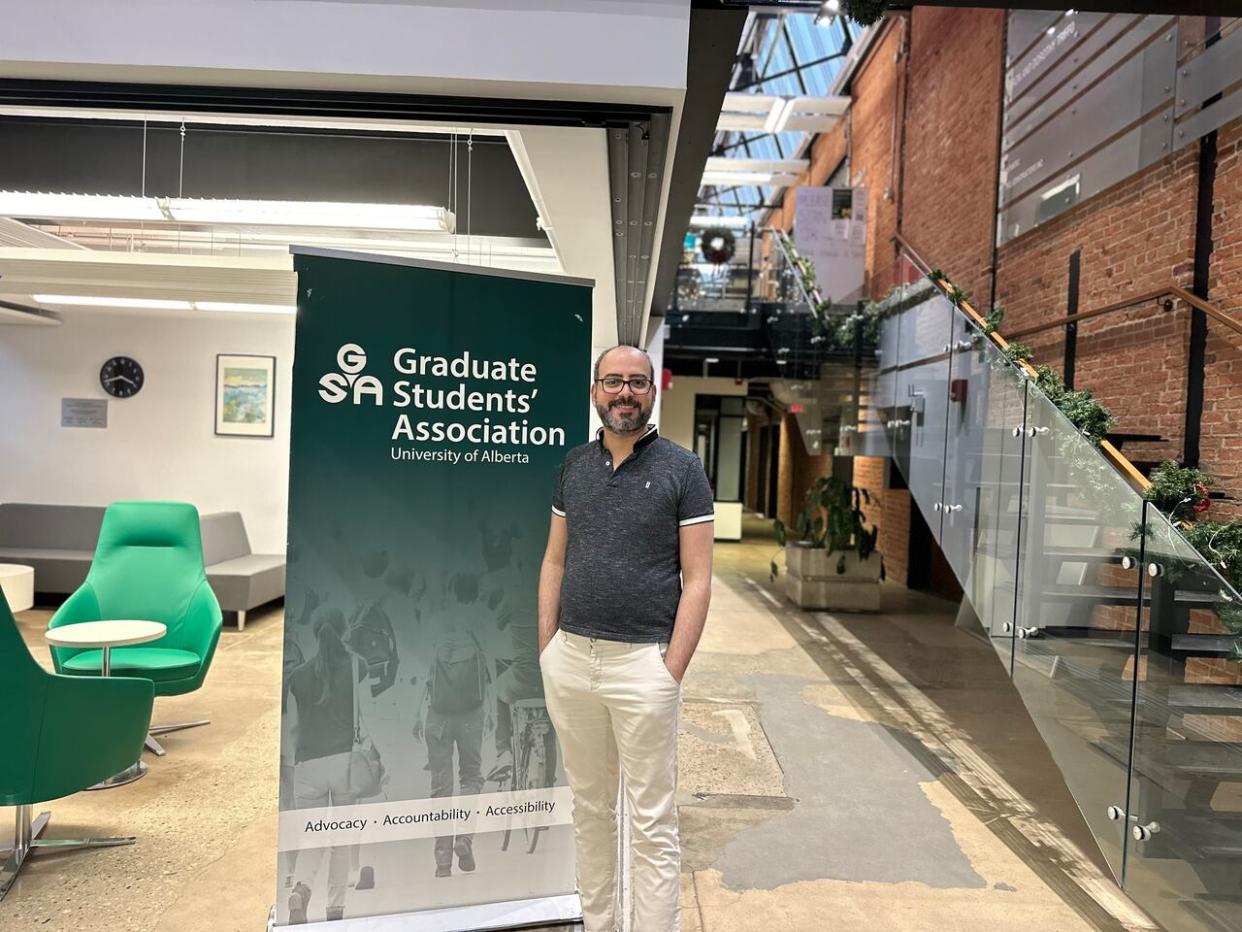U of A grad students raise concerns over 'alarming' effects of financial strain

Student advocates at the University of Alberta say the results of a new graduate student survey show concerning levels of financial stress.
The U of A Graduate Students' Association ran an online survey in August, gathering 640 responses about finances and the cost of living. The results are almost equally split between masters and PhD students, according to self-reported responses.
The association's report, released this week, highlights student struggles with the rising cost of housing, food and tuition. It describes difficult decisions students reported making in response to tuition increases, like taking part-time work that meant they delayed graduation, or facing extra challenges finding affordable housing.
President Bishoi Aziz said he's especially worried to see 40 per cent of the respondents say they've thought about dropping out of their program to work or save money because of the cost of living.
"This is quite alarming," he said.
In a different survey of grad students across Canada in 2021, 30 per cent of respondents said that they'd considered leaving their studies over financial struggles.
Many graduate students rely on a stipend during their program — a grant they receive while working full-time on research.
It varies depending on program and post-secondary institution, but base funding can range from about $17,000 to $30,000, with higher guaranteed funding for PhD students in some cases.
Zak Kaal is just a few months away from finishing a master's degree in bioresource technology at the University of Alberta.
He said while he hasn't ever personally considered leaving before graduation, he's seen others decide they couldn't afford to finish their degree.
Kaal gets an annual stipend of $25,000, and at the beginning of his studies, it was just manageable to get by. He said the relentless pressure of inflation has changed that.

University of Alberta graduate student Zak Kaal volunteers at the Campus Food Bank, and he's also relied on the service as a client for supplementary groceries. (Trevor Wilson/CBC)
"You're at the lab 40, 50 hours a week, so that leaves no time, really, for you to have a second source of income. Your main source of income is from grad school, which is rarely enough to cover tuition, rent, utilities, food," said Kaal.
Kaal said he considered continuing on to a PhD program, but committing to another five years of school and research under the current financial pressures is a big deterrent.
"Not knowing just how high grocery prices are going to get, rent is going to get, utilities are going to get — I don't want to be taking that risk right now."
Aziz said varied details of how that funding works across graduate programs means the affordability experience isn't the same for everyone. But he thinks the results of the U of A grad student survey should prompt a closer look at where students are struggling the most.
Tuition increases up the pressure
Graduate school tuition, on average, is more expensive than undergraduate programs.
At the U of A, both have seen cost increases in recent years after cuts to provincial post-secondary grants. The university's board of governors approved 5.5 per cent tuition increases for domestic grad and undergrad students in the 2023-2024 academic year, but there is a rebate for some grad students admitted before 2020.
Starting in the fall of 2024, the province will limit Alberta post-secondary tuition increases to two per cent each year.
Concordia University of Edmonton psychology professors Bryan Rooney and Alison Kulak recently analyzed the historical changes to tuition costs and minimum wage in Alberta, for a project on financial stress and student well-being.
Rooney said the numbers show that in the late 1970s, a U of A arts undergraduate student could cover their tuition three times over with a full-time minimum wage job over the summer months.
By the late 1990s, students who tried to do the same could make enough to pay for school, but with no money left over.
The relationship between income and tuition costs started to change after Alberta's minimum wage increased to $15 per hour, but both researchers said student finances are much tighter now than when they were in school themselves.
"Parents of students who are in university now may not realize that tuition hasn't just increased with cost of living — tuition has multiplied in in growth," Rooney said.

